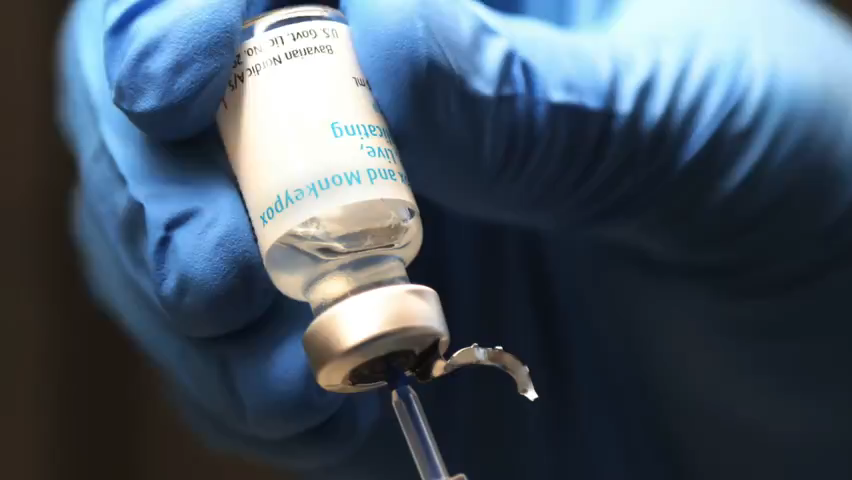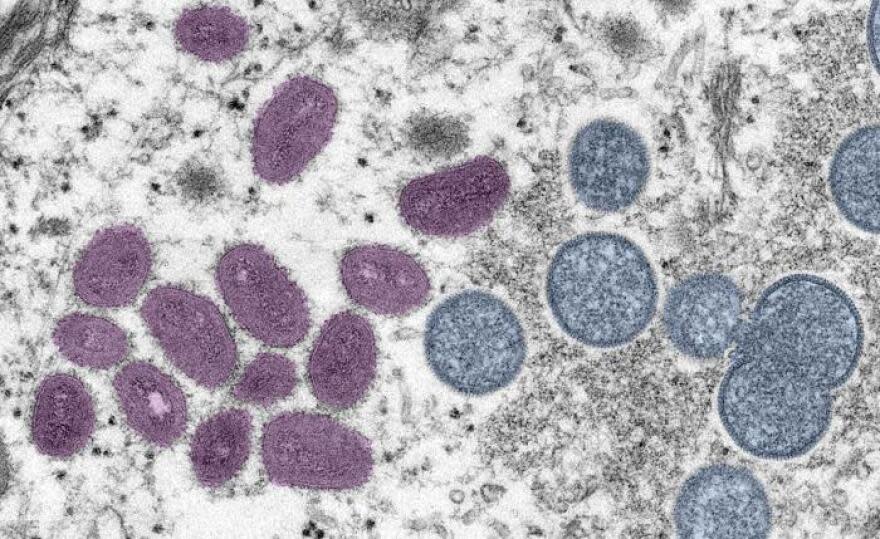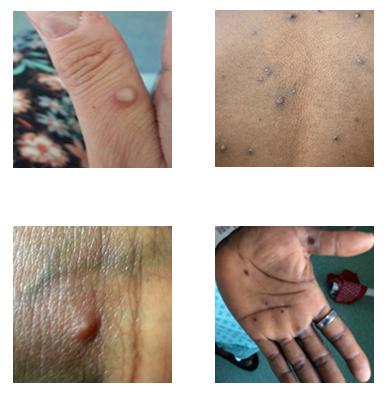Monkeypox in Memphis: Doctor answers questions about symptoms, vaccines and more
The Shelby County Health Department reported the county's first case of monkeypox on Monday, a rare virus in the same family as smallpox but which is typically less severe.
According to the Centers for Disease Control and Prevention, about 3,500 cases have been identified in the United States, including 18 in Tennessee.
Here's what Dr. Shirin Mazumder, an infectious disease specialist with Methodist Le Bonheur Healthcare System, said about the symptoms of monkeypox, treatment of the virus, and if Mid-South residents should be worried. Some responses have been edited for length.
Who is at highest risk for monkeypox?
With the current outbreak, the majority of cases are currently being reported in gay and bisexual men and men who have sex with men. There was actually a recent report in the New England Journal of Medicine last week that reported on 500 cases and 98% of those cases were in men who have sex with men. With that being said, anyone is really at risk and we want to make sure that everyone is aware because really, anyone can be affected. In the last few days, there have been reports of two children here in the United States that have developed monkeypox, and there are reports of women and also heterosexual individuals developing monkeypox. So really one really anyone is at risk.
Monkeypox cases: Closer look: Rising reports of monkeypox cases in US and around the world raise concern
Monkeypox and travel: As monkeypox cases rise, health expert says travelers shouldn't worry about casual contact
How is monkeypox spread?
The primary route of transmission is really direct contact, direct contact with skin lesions, scabs, and bodily fluid. And it can also be spread by objects, so things such as bedding, linens, towels, and utensils, that may have come in contact with an infectious rash or bodily fluid. It can also be spread, less likely, through respiratory secretions. There really needs to be a prolonged period of face-to-face contact for monkeypox to be spread this way... lastly, it can be spread from mother to fetus via the placenta.

What symptoms should people look out for?
We're really hearing reports of more atypical symptoms developing in this current outbreak. Traditionally, with monkeypox, patients usually develop flu-like symptoms before the onset of the rash... symptoms like fever, headache, fatigue, and sometimes enlarged lymph nodes in the head and neck area, and those symptoms are then followed by a classic rash which ends up looking a lot like blisters that can be diffused and all over the body. Patients are presenting with one lesion or maybe just a few lesions. Some patients are presenting with lesions in just their mouth, their genital area, or their perirectal area. And those flu-like symptoms that traditionally start before the rash, we're hearing reports that some people are not developing those symptoms or that those flu-like symptoms can happen at the same time as the rash or even follow the rash.
What to do if you think you've been exposed
It's important for people to be aware of what the symptoms consist of and how it is spread. And we certainly recommend that anyone that has come in contact with a known case of monkeypox reach out to their physician and health care team, because they will be asked to monitor for symptoms very closely. And if anyone does develop symptoms, because we want to contain this and not spread this, they reach out to their health care teams because there is an isolation period that is necessary to prevent the spread to others.

Does the smallpox vaccine protect against monkeypox?
The last smallpox vaccine administered here in the U.S. was in 1972. And so, according to the CDC, individuals that have previously received the smallpox vaccine do have protection against monkeypox. It's not 100%. But there is still some protected activity. And because of that, one of the preventative measures that we have available right now is one of the smallpox vaccines, it's called JYNNEOS, which is being distributed to areas here in the United States to use as post-exposure prophylaxis if someone does have contact with a known monkeypox exposure to prevent the illness from developing and to prevent the symptoms from becoming severe.
St. Jude Children's Research Hospital: 'Commitment to Memphis': Here's what St. Jude's $12.9 billion expansion means for the city
Memphis hospitals: Nurses (and much more) needed: How Memphis hospitals are rebuilding their staffs
What can be done to prevent getting monkeypox?
Prevention right now relies on the vaccine. If somebody has had a known exposure, the vaccine is really the most effective form of prevention if it is available. We also recommend that people just be aware of what's happening in their community because the virus may have more prevalence in certain areas. We want people to be aware of that. We certainly ask people to be aware of what the symptoms are because if they come in contact with someone or have a sexual partner that has certain symptoms if they've been exposed, then we want them to reach out to their health care provider to see what the next best steps are.
Are vaccines available in the Memphis area?
Doses of the monkeypox vaccine, this JYNNEOS vaccine, are being released from the federal government. And right now most of the doses are going to areas that have a high number of cases. So a lot of the doses of the vaccine have been allocated to places like Chicago, New York, California, Florida, and Illinois, where a lot of the cases are occurring. And so I think that with greater availability of the vaccine and with increased production of the vaccine, we will see more doses and other areas.

What does treatment for monkeypox look like?
The majority of people that develop monkey pox will recover with supportive care and just symptom management. So most people will get better within two to four weeks. There is an antiviral medication available through the CDC. It's called TPOXX or Ticovirimat, and it has not been approved for monkeypox, but it is being used for monkeypox because it is effective. This medication is not for everyone. It's really reserved for certain groups of people, including individuals that may have severe symptoms or complications from monkeypox, individuals who may be immunocompromised, the pediatric population, children under the age of 8, and people with a history of atopic dermatitis or eczema. In these groups of individuals, the risk of developing severe disease and complications is higher which is why this medication is helpful for these individuals.
How easy is it to get tested for monkeypox?
Testing has become easier for monkeypox because some of the commercial labs that we have more access to are now performing monkeypox testing. So the testing of monkeypox consists of getting a swab — we swab where the skin lesions are — and those swabs are then sent off to the testing company and most of these companies are reporting around a three-to four-day turnaround. So it's certainly become easier to test. We're not just relying on the health department to perform testing. So it has improved in terms of testing availability recently.
How concerned should Mid-South residents be?
I don't think people need to panic. But I do think it's something that people do need to be aware of. I anticipate that we will probably see more cases. This will not be on the level of what we've seen with COVID. But the cases are rolling. So I think it's important for people to really be aware of how this is spread, and what the signs and symptoms are so that they can reach out to see what the next steps for them are.
Corinne S Kennedy covers economic development and healthcare for The Commercial Appeal. She can be reached via email at Corinne.Kennedy@CommercialAppeal.com
This article originally appeared on Memphis Commercial Appeal: Monkeypox in Memphis: What to know about disease, symptoms, vaccines

